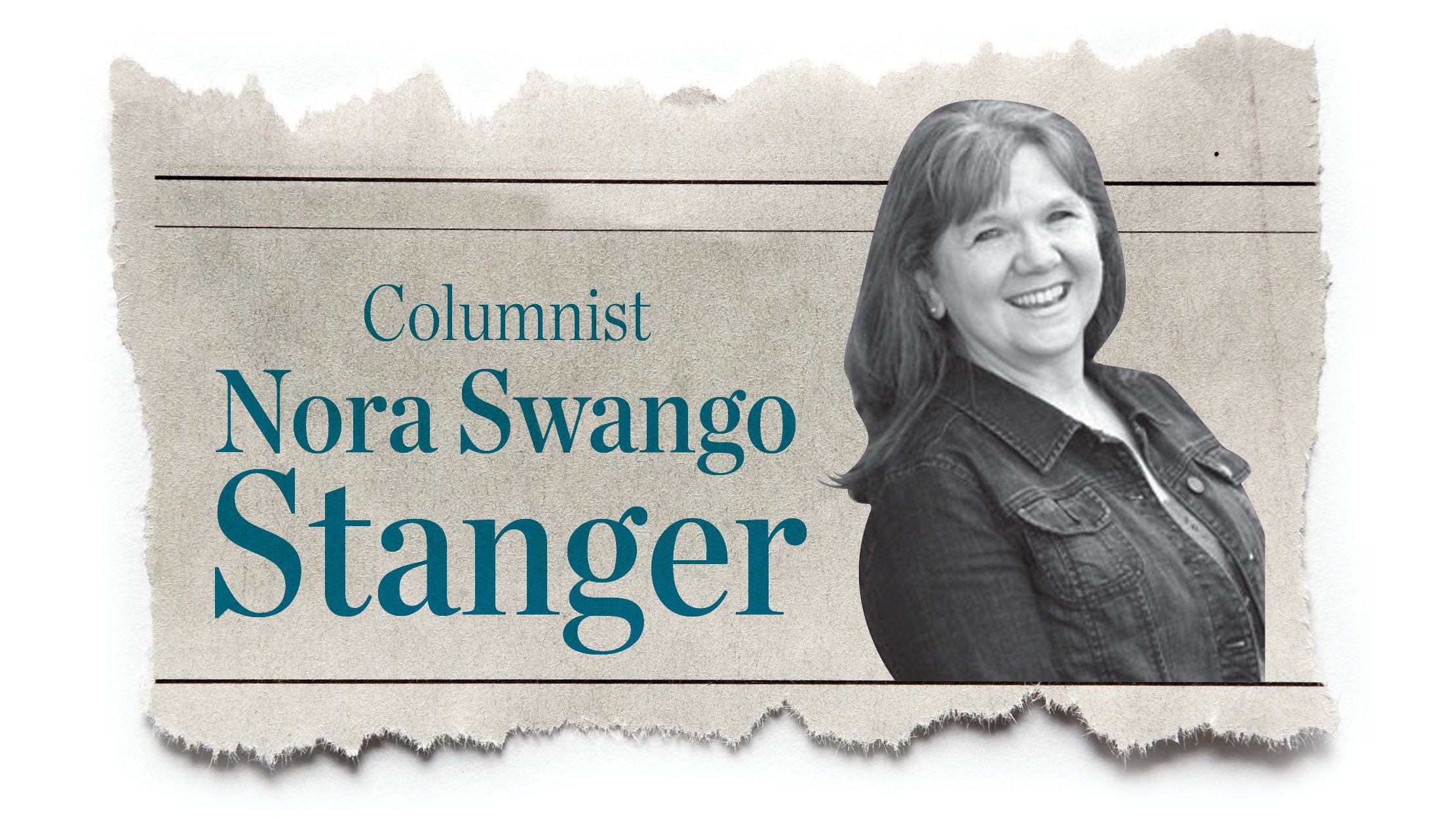Nora Swango Stanger: The value of Granny’s apron
Published 12:00 am Wednesday, March 23, 2022
I had someone ask me recently if I have a favorite possession. Without hesitation, I said, “My granny’s apron.”
Granny was born in 1902. She had an eighth-grade education. But this does not mean she wasn’t gifted intellectually. In her day, that’s as far as public school went in her home area and women from modest means didn’t have opportunity for college.
She took a West Virginia State Board exam and earned her teaching certificate. She taught in a one-room school for a short time before marrying.
In many ways, she was a self-taught woman in all areas. She loved to read and would share her learning with me. She sat up late at night playing cards with my youngest sisters to encourage their math skills.
She drilled me on my spelling words. Her theory was that if I could recite them correctly, immediately before I went to sleep and the first thing in the morning, I would most certainly do well during the test.
This mountain woman knew many of the medicinal plants in the hills. She often made poultices and teas from such herbs as Pipsissewa to cure what ailed us. A teetotaler herself, she could concoct cough syrup from whiskey, lemon and honey. It burnt going down, but did the job to cure the cough.
Granny knew how to clean chickens that were too old to lay eggs and helped Grandpa skin many groundhogs to prepare meals for us. She made biscuits from scratch, never using a recipe. She told me when I was 15 that I would never get a man because I couldn’t make a good biscuit. (I married a city boy — he doesn’t know the difference.)
Granny had the prettiest gardens because she tended the plants every morning before the sun got too hot and every evening before sundown. I remember when she’d chase my sister, Linda, and me out of the tomato patch with a broom. Then she’d fuss at us for sneaking the saltshaker from her kitchen. Come harvest time, she’d build a huge fire in the wood stove to can the vegetables, so we’d have food for winter.
Most everything she owned, including clothing, was handmade. Granny made her own patterns for dresses from newspaper and sewed feed sack cloth into simple dresses on her peddle Singer machine. Once, she even made us matching feed sack dresses. (She was big Nora; I was little Nora). These were calico print with pink flowers. I never thought I looked as pretty as I did when we wore those dresses together.
This is where the apron comes into the story: The night Granny died I thought my world was over. Though a humble woman, she had been a pillar of strength and stability for our family throughout my life.
My mom was a single woman with eight children to raise. Mom had to work and scrape to get by. Granny stood beside her in all the struggles.
I was at Berea College when I got the news of her passing. It was in the middle of the night and all I remember was walking the dorm halls in emotional shock. The ride home was bittersweet. I wanted to be with my family, but I knew Granny wouldn’t be there.
After the funeral and before going back to Berea, I asked my mom if I could have Granny’s apron. It was made of blue floral print feed sack, with a loop that went over her head and straps to tie behind her back. It even had a safety pin clipped to it, where she had found it while cleaning. I treasured that apron. It reminded me of everything I loved about my granny. It even smelled like her.
I purposely folded the apron and put it in a Ziploc bag, hoping to keep her scent forever. On the one-year anniversary of her death, I was a graduate student in Abilene, Texas. Homesick and still grieving, the anniversary felt as raw to me as the day she died. So I opened the bag to inhale Granny just one more time. I was devastated to find that the scent was gone.
Sometimes I get concerned that I’ve forgotten what Granny’s voice sounds like. I’ve forgotten the warmth of her thick calloused hand on my forehead when sick. I’ve forgotten her scent. But then I look at Granny’s apron and I remember it all.
Nora Swango Stanger, a Lawrence County native and Appalachian outreach coordinator for Sinclair Community College, can be reached at norastanger@gmail.com.






